1. Technical Expertise and Experience
One of the most important factors to consider when choosing a Flex PCB Supplier is their level of technical expertise and experience in the industry. Look for a supplier with a proven track record of successfully delivering flex PCB Prototypes across various industries and applications.
Evaluating Technical Expertise
To gauge a supplier’s technical expertise, consider the following:
- Years of experience in the flex PCB industry
- Range of flex PCB technologies and materials they work with
- Complexity of projects they have successfully completed
- Certifications and industry standards they adhere to (e.g., ISO, IPC, UL)
Benefits of Working with an Experienced Supplier
Partnering with an experienced flex PCB supplier offers several advantages:
- Faster turnaround times due to streamlined processes and expertise
- Higher quality prototypes thanks to well-established manufacturing techniques
- Valuable insights and recommendations based on their extensive knowledge
- Ability to handle complex designs and challenging requirements
2. Manufacturing Capabilities and Equipment
Another critical aspect to consider is the supplier’s manufacturing capabilities and equipment. A well-equipped facility with state-of-the-art machinery and skilled personnel is essential for producing high-quality flex PCB Prototypes consistently.
Key Manufacturing Capabilities
When evaluating a supplier’s manufacturing capabilities, look for:
- Advanced manufacturing equipment (e.g., laser cutting, photolithography, lamination)
- Automated processes to ensure precision and repeatability
- Strict quality control measures and testing procedures
- Ability to handle various material types and thicknesses
Importance of Modern Equipment
Investing in modern equipment is crucial for a flex PCB supplier, as it offers:
- Improved accuracy and precision in the manufacturing process
- Faster production speeds and shorter lead times
- Enhanced reliability and consistency in prototype quality
- Ability to accommodate complex designs and fine-pitch components
3. Quality Control and Testing Procedures
Ensuring the quality and reliability of your flex PCB prototype is paramount. Choose a supplier with robust quality control and testing procedures in place to minimize the risk of defects and failures.
Quality Control Measures
A reputable flex PCB supplier should have the following quality control measures:
- Incoming material inspection and verification
- In-process quality checks at various stages of manufacturing
- Final inspection and testing of completed prototypes
- Documented quality control procedures and standards
Testing and Certification
In addition to internal quality control, look for a supplier that offers:
- Electrical testing (e.g., continuity, insulation resistance, high-potential)
- Mechanical testing (e.g., bend testing, adhesion testing)
- Environmental testing (e.g., thermal cycling, humidity exposure)
- Certifications (e.g., UL, CE, RoHS) as required by your application

4. Lead Times and Turnaround
When developing a flex PCB prototype, time is often of the essence. Choose a supplier with a proven track record of meeting or exceeding promised lead times and turnaround times.
Factors Affecting Lead Times
Several factors can impact lead times, including:
- Complexity of the flex PCB design
- Material availability and sourcing
- Manufacturing capacity and workload
- Shipping and logistics
Strategies for Faster Turnaround
To ensure faster turnaround times, look for a supplier that offers:
- Expedited manufacturing options for time-sensitive projects
- Streamlined communication and project management
- In-house manufacturing capabilities to minimize delays
- Strategic location for efficient shipping and logistics
5. Cost and Pricing Structure
Cost is always a significant consideration when choosing a flex PCB prototype supplier. While it’s important to find a competitive price, be cautious of sacrificing quality for the sake of lower costs.
Factors Affecting Pricing
Pricing for flex PCB prototypes can vary based on several factors:
- Design complexity and layer count
- Material selection and special requirements
- Quantity and order volume
- Manufacturing process and equipment used
Cost Optimization Strategies
To optimize costs without compromising quality, consider:
- Collaborating with the supplier to simplify the design where possible
- Choosing standard materials and processes when appropriate
- Ordering in larger quantities to benefit from volume discounts
- Establishing a long-term partnership with the supplier for ongoing cost savings
6. Communication and Customer Support
Effective communication and responsive customer support are essential for a smooth and successful flex PCB prototype development process. Choose a supplier that prioritizes clear, timely communication and offers dedicated support throughout the project.
Communication Channels
Look for a supplier that offers multiple communication channels, such as:
- Email and phone support for general inquiries and updates
- Online project management tools for real-time collaboration and progress tracking
- Regular status reports and milestone updates
- In-person or virtual meetings for more complex discussions
Responsive Customer Support
A responsive and knowledgeable customer support team can make a significant difference in your experience. Look for a supplier that provides:
- Dedicated account managers or project coordinators
- Quick response times to inquiries and requests
- Technical support and troubleshooting assistance
- Flexibility in accommodating changes or revisions
7. Intellectual Property Protection
Protecting your intellectual property (IP) is crucial when outsourcing your flex PCB prototype development. Choose a supplier with strict confidentiality measures and a proven track record of safeguarding clients’ proprietary information.
Non-Disclosure Agreements (NDAs)
Ensure that the supplier is willing to sign a comprehensive NDA that covers:
- Confidentiality of design files, specifications, and other sensitive information
- Restrictions on sharing or disclosing information to third parties
- Consequences for any breaches of confidentiality
Data Security Measures
In addition to legal agreements, look for a supplier with robust data security measures, such as:
- Secure file transfer protocols and encrypted communication channels
- Restricted access to sensitive information on a need-to-know basis
- Regular security audits and vulnerability assessments
- Employee training on data protection and confidentiality
8. Reputation and References
Finally, consider the supplier’s reputation in the industry and seek references from previous clients to gauge their level of satisfaction and the quality of their experience.
Researching Supplier Reputation
To research a supplier’s reputation, consider:
- Online reviews and testimonials from previous clients
- Industry awards and recognition
- Participation in industry associations and events
- News articles or press releases featuring the supplier
Requesting References
Don’t hesitate to ask the supplier for references from clients with projects similar to yours. When contacting references, inquire about:
- Overall satisfaction with the supplier’s performance
- Quality of the flex PCB prototypes received
- Adherence to promised lead times and budgets
- Responsiveness and effectiveness of communication
- Willingness to recommend the supplier to others
Frequently Asked Questions (FAQ)
-
How long does it typically take to develop a flex PCB prototype?
The lead time for a flex PCB prototype can vary depending on the complexity of the design, material availability, and the supplier’s workload. On average, lead times range from 2-4 weeks, but some suppliers may offer expedited options for faster turnaround. -
What factors should I prioritize when choosing a flex PCB prototype supplier?
When selecting a supplier, prioritize factors that align with your project’s specific needs and requirements. Consider technical expertise, manufacturing capabilities, quality control, lead times, cost, communication, IP protection, and reputation to make an informed decision. -
How can I ensure my intellectual property is protected when working with a supplier?
To protect your intellectual property, work with a supplier that is willing to sign a comprehensive non-disclosure agreement (NDA) and has strict data security measures in place. Clearly communicate your confidentiality requirements and monitor the supplier’s adherence to the agreed-upon terms. -
What should I do if I encounter issues with my flex PCB prototype?
If you encounter issues with your prototype, first contact your supplier’s customer support team. Provide a detailed description of the problem, along with any relevant documentation or photos. Collaborate with the supplier to identify the root cause and discuss potential solutions, such as design revisions, manufacturing process improvements, or quality control enhancements. -
Can I request design support from my flex PCB prototype supplier?
Many flex PCB prototype suppliers offer design support services to assist clients in optimizing their designs for manufacturability, reliability, and cost-effectiveness. Inquire about the supplier’s design support capabilities and collaborate with their team to leverage their expertise and ensure the best possible outcome for your project.
Conclusion
Choosing the right flex PCB prototype supplier is a critical decision that can significantly impact the success of your project. By carefully considering the eight key aspects outlined in this article – technical expertise, manufacturing capabilities, quality control, lead times, cost, communication, IP protection, and reputation – you can make an informed choice and establish a strong partnership with a supplier that meets your needs and exceeds your expectations.
Remember, a reliable and experienced flex PCB prototype supplier can provide invaluable support and guidance throughout the development process, helping you bring your innovative ideas to life efficiently and cost-effectively. Take the time to thoroughly evaluate potential suppliers, ask questions, and seek references to ensure a successful collaboration and high-quality results.
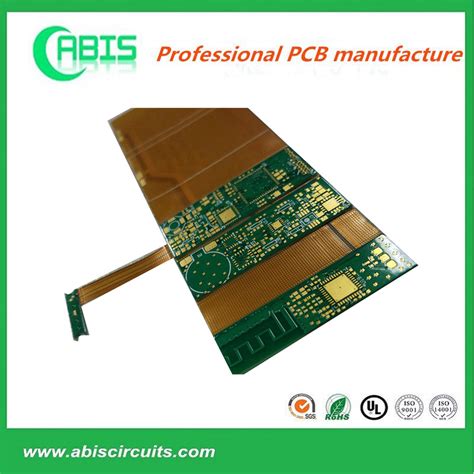
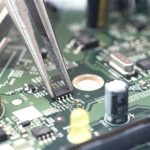
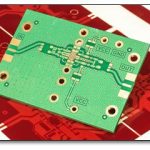
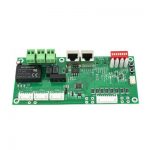
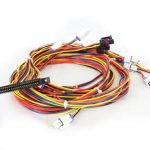
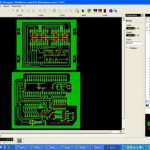
Leave a Reply